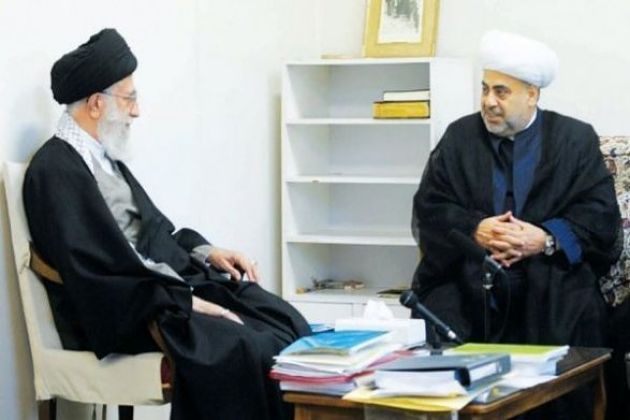“Chutzpah” in Jewish culture is a quality that can be translated into Russian as “extreme audacity,” “impudence,” “shamelessness,” which allows one to achieve the desired result. It was precisely this quality that the “Sheikh ul Islam” of Azerbaijan, Allahshukur Pashazade, tried to use last week. But it had the opposite effect.
After a festive prayer, he claimed that one of the main reasons for Azerbaijan’s victory in the Second Karabakh War was the fatwa of “Ayatollah” Khamenei. “His fatwa was the harbinger of victory. He issued a fatwa saying that Karabakh is the land of Islam and those who died fighting for it are martyrs, and this brought us victory,” the mythmaker said. However, it should be noted that he had the conscience (or lack of chutzpah) not only to mention Iran and Khamenei’s fatwa as the reason for Azerbaijan’s victory, but also to acknowledge Turkey’s support.
Even representatives of Turkey could not ignore such audacity. Turkish presidential advisor Mujahit Kyuchyukyilmaz responded elegantly and humorously in a tweet: “When Khamenei sent arms to Armenia, he also sent a fatwa to Azerbaijan. But Khamenei’s fatwa prevailed over his weapons.” However, the main storm of indignation was caused by this statement within the Azerbaijani society, which has long been aware that Iran and its Rafidist, Khomeinist regime directly or indirectly supported Armenia in this conflict, starting from the first war.
Therefore, it would have been better for the Shiite “Sheikh ul Islam” not to try to present black as white. As an Azerbaijani religious figure with a patriotic position, he would not have been criticized for the pro-Armenian policies of his Iranian co-religionists. However, when he decided to portray these allies of Armenia as the main reason for its defeat in the recent war, people simply exploded. And this reaction showed that there is no more respect in the Azerbaijani society for the Shiite “religious leader of Azerbaijan” who, regardless of the changing and obvious geopolitical realities and priorities of his country, continues to play the role of the fifth column of a hostile state.
And if that’s the case, then there is a need for reform in the religious sphere, or more precisely, in its political management. And if Azerbaijan and Turkey build their relations on the principle of “one nation, two countries”, perhaps it would make sense to use Turkey’s experience not only in the military sphere but also in this area? Specifically, to create the Azerbaijani equivalent of the Presidency of Religious Affairs (Diyanet) and to involve this Turkish department in its organization and development, just as the Turkish General Staff actively assisted in the reform and establishment of the new victorious Azerbaijani army.
Of course, the establishment of an Azerbaijani Diyanet should take into account the religious specificity of this country, i.e. to guarantee the needs of the Shiite community without imposing Sunni Islam in a crude and widespread manner. Overall, however, the need for a change in Azerbaijan’s religious and political priorities is evident today, and the reaction of Azerbaijani society to the chutzpah of his “Sheikh ul Islam” has clearly demonstrated this.

